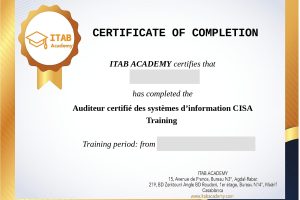The Ultimate Guide to Choosing the Right Certification Course
Certification courses have become increasingly popular as a means to acquire new skills, advance careers, and stay competitive in today’s job market. However, with a plethora of options available, choosing the right certification course can be overwhelming. This comprehensive guide aims to simplify the process by providing step-by-step guidance on how to select the perfect certification course to meet your professional goals and aspirations.
**1. Identify Your Goals and Objectives**
Before diving into the vast sea of certification courses, take some time to reflect on your career goals, aspirations, and areas of interest. Ask yourself the following questions:
– What skills or knowledge do I want to acquire or enhance?
– What are my short-term and long-term career goals?
– Which industries or sectors am I interested in pursuing a career in?
– What are the specific requirements or qualifications needed to advance in my chosen field?
By clarifying your goals and objectives, you can narrow down your options and focus on certification courses that align with your professional aspirations.
**2. Research Certification Options**
Once you have a clear understanding of your goals, it’s time to research certification options that can help you achieve them. Consider the following factors when evaluating certification courses:
– Relevance: Ensure that the certification course covers topics or skills that are relevant to your career goals and industry.
– Accreditation: Look for certification programs offered by reputable organizations or institutions that are accredited by recognized accrediting bodies.
– Curriculum: Review the course curriculum to determine if it covers the necessary topics, skills, and competencies you wish to acquire.
– Delivery Format: Consider your preferred learning style and schedule when choosing between online, in-person, or blended learning formats.
– Cost: Evaluate the cost of the certification course, including tuition fees, study materials, and exam fees, and determine if it fits within your budget.
**3. Assess Course Quality and Reputation**
Before committing to a certification course, assess the quality and reputation of the course provider. Consider the following factors:
– Reviews and Testimonials: Read reviews and testimonials from past participants to gauge their satisfaction with the course content, instructors, and overall learning experience.
– Instructor Credentials: Research the qualifications and experience of the course instructors to ensure they are knowledgeable and experienced in their field.
– Alumni Success Stories: Look for success stories or case studies of alumni who have completed the certification course and achieved their career goals as a result.
**4. Evaluate Certification Requirements and Prerequisites**
Be sure to carefully review the certification requirements and prerequisites to determine if you meet the eligibility criteria. Consider the following:
– Education and Experience: Some certification courses may have specific educational or professional experience requirements that you must meet to enroll in the program.
– Prerequisite Courses: Determine if there are any prerequisite courses or exams you need to complete before enrolling in the certification course.
– Exam Format and Passing Score: Familiarize yourself with the exam format, passing score, and any other requirements you need to fulfill to obtain the certification.
**5. Consider Career Benefits and Opportunities**
Lastly, consider the potential career benefits and opportunities that completing the certification course can offer. Research the following:
– Career Advancement: Determine how the certification can enhance your skills, qualifications, and marketability to employers and advance your career prospects.
– Salary Increase: Research the average salary increase or earning potential associated with obtaining the certification in your industry or field.
– Job Opportunities: Explore job boards and career websites to see if employers in your desired industry or sector value and prioritize candidates with the certification.
**Conclusion**
Choosing the right certification course is a crucial step towards achieving your professional goals and advancing your career. By identifying your goals, researching certification options, assessing course quality, evaluating requirements, and considering career benefits, you can make an informed decision and select the perfect certification course to propel your career forward. Remember to invest time and effort into your decision-making process to ensure that the certification course aligns with your aspirations and paves the way for success in your chosen field.




